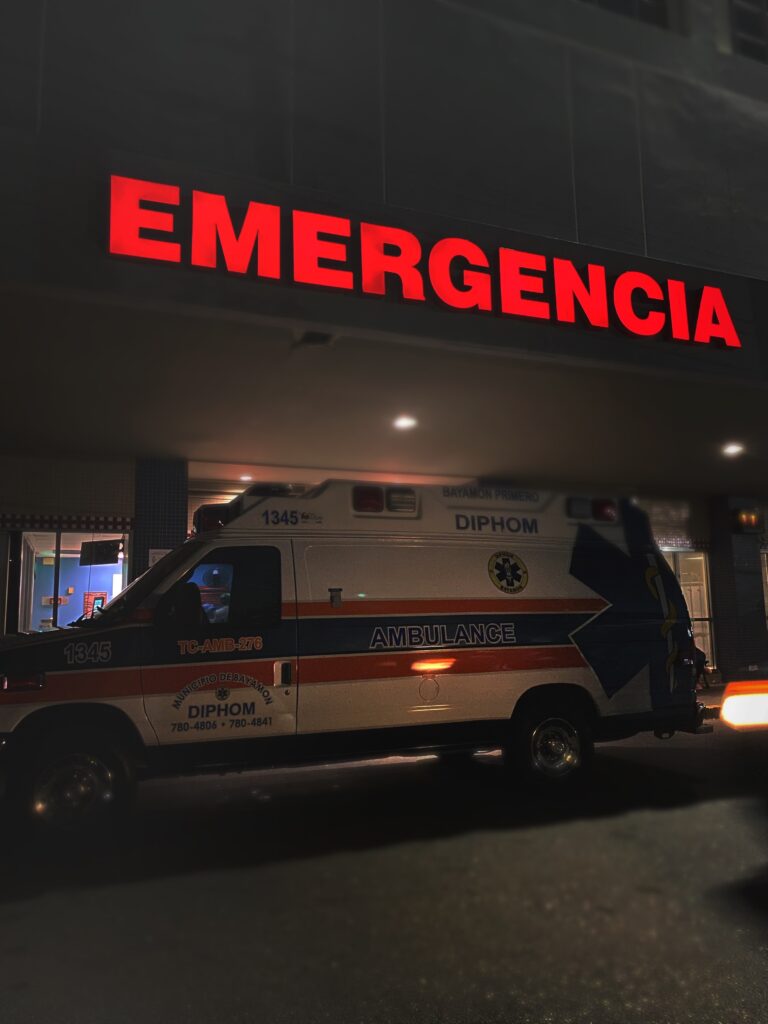In the world of prepping, where individuals prepare for potential emergencies or disasters, ethical considerations play a significant role. From the debate surrounding hoarding resources to the moral obligations towards fellow community members, the choices and actions taken by preppers raise questions about fairness, altruism, and responsibility. This article explores the ethical considerations of prepping, shedding light on the dilemmas faced by those who strive to be prepared for uncertain times.

Privacy and Security
Protection of personal information
In the world of prepping, it’s essential to consider the ethical implications of privacy and security. While it might be tempting to collect and share personal information for the purpose of forming tight-knit communities, it’s crucial to adhere to a strict code of ethics that protects individuals’ privacy. Respecting others’ boundaries and only sharing information that is voluntarily disclosed ensures that everyone feels safe and secure in the prepping community.
Sharing information with others
Sharing information is a fundamental aspect of prepping, but it’s essential to approach it ethically. While it’s vital to pass on knowledge and strategies to help others prepare for emergencies, it’s equally important to respect individuals’ autonomy and understand their unique circumstances. Strive for an inclusive and supportive environment, where information is freely shared, but no one is pressured into divulging more than they are comfortable with.
Ethics of surveillance
Surveillance is a contentious issue, even within the prepping community. While some argue that monitoring and gathering information can be beneficial for the collective safety, others express concerns about the infringement on personal freedoms and potential abuse of power. It is important to approach surveillance ethically, always ensuring that it is justified, balanced with privacy considerations, and conducted with transparency and consent.
Resource Allocation
Fair distribution of resources
One ethical consideration of prepping is the fair distribution of resources. As individuals prepare for emergencies, it’s crucial to remember that resources are limited. It’s essential to avoid hoarding and prioritize sharing resources with those who are most in need. Balancing the needs of the individual with the needs of the community ensures that everyone has access to the necessary resources for survival.
Hoarding vs sharing
The line between hoarding and sharing can sometimes be blurry in the prepping community. While it’s essential to have enough supplies for yourself and your loved ones, hoarding resources to the detriment of others is unethical. Sharing surplus resources and collaborating with others builds a stronger and more resilient community, working towards a fair distribution of resources and fostering a sense of unity.
Ethics of favoritism
A challenge that arises within prepping is the ethical dilemma of favoritism. It’s crucial to treat all individuals with fairness and impartiality, avoiding undue favoritism based on personal relationships or other biases. Prioritizing resources and assistance based on need, rather than personal preferences, contributes to a more just and ethical prepping community.
Social Justice
Addressing underlying systemic issues
Prepping is not immune to the social issues that exist in our society. It’s important to acknowledge and address the underlying systemic issues that contribute to vulnerabilities during emergencies. By working towards social justice and advocating for equitable access to resources and services, preppers can contribute to a more inclusive and fair society for all.
Responsibility towards marginalized communities
In the pursuit of ethical prepping, it is essential to recognize the responsibility towards marginalized communities. These communities often face additional barriers in accessing resources and support during emergencies. Proactively reaching out and providing assistance to those who are most vulnerable helps to ensure that no one is left behind and promotes a more inclusive and equitable prepping community.

Ethics of privilege
Prepping can inadvertently perpetuate existing privilege dynamics. It’s essential to reflect on one’s own privilege and actively work to dismantle systems of inequality. Providing opportunities for marginalized voices to be heard, making resources accessible to all, and actively challenging privilege contribute to a more ethical approach to prepping.
Community Engagement
Balancing individual vs community needs
Community engagement is a cornerstone of prepping. It is important to strike a balance between meeting individual needs and prioritizing the common good. A strong sense of community aids in preparedness and offers support during emergencies. However, it’s crucial to respect individual autonomy and recognize that personal circumstances may require different approaches to preparedness.
Ethics of cooperation and collaboration
Cooperation and collaboration are integral to building a resilient prepping community. Ethical engagement involves actively seeking diverse perspectives, actively supporting others, and working together towards shared goals. Fostering a culture of cooperation rather than competition promotes a strong and united front in the face of emergencies.
Inclusion and exclusion
Another ethical consideration in community engagement is ensuring inclusion and avoiding exclusion. Prepping communities should strive to be inclusive, embracing individuals from all backgrounds and walks of life. By creating a sense of belonging and providing support to all members, irrespective of their differences, prepping communities can foster unity and resilience.

Long-term Sustainability
Environmental impact
Prepping often involves stockpiling supplies, but it’s important to consider the environmental impact of these actions. Ethical preppers should take steps to minimize their ecological footprint by employing sustainable practices, such as storing food in reusable containers, reducing waste, and implementing energy-efficient systems. Striving for long-term sustainability not only benefits the planet but also secures resources for future generations.
Preserving natural resources
Recognizing the finite nature of natural resources, ethical prepping emphasizes the importance of conservation. Responsible use of resources, such as water and fuel, ensures that they remain available for both prepping needs and the wider community. Preppers should be mindful of their consumption habits and actively seek ways to preserve and protect natural resources for the greater good.
Ethics of self-sufficiency
The pursuit of self-sufficiency in prepping raises ethical considerations. While self-sufficiency can provide a sense of security, it is essential not to isolate oneself from the needs of the community. Ethical preppers strike a balance between self-sufficiency and recognizing the benefits of interdependence. Collaboration and mutual support are vital in building a resilient and sustainable community.
Response to Emergencies
Providing aid to others in need
During emergencies, ethical preppers prioritize providing aid to those in need. This involves sharing resources, offering assistance, and using skills and knowledge to help others. Actively seeking opportunities to help and support vulnerable populations showcases the moral responsibility towards fellow human beings and contributes to a compassionate and caring prepping community.
Ethics of self-preservation
While providing aid to others is crucial, it is equally important to consider the ethics of self-preservation. Ensuring one’s own safety and well-being allows individuals to continue providing help and support to others. Ethical preppers strike a balance between self-preservation and altruism, recognizing that they need to be healthy and prepared to effectively aid others.
Responsibility towards vulnerable populations
During emergencies, it is essential to recognize and prioritize the needs of vulnerable populations. Ethical prepping involves actively advocating for vulnerable communities, providing them with the necessary support, and ensuring their protection. By actively working to reduce the vulnerabilities faced by marginalized populations, preppers play a crucial role in creating a more just and equitable society.

Utilization of Skills and Knowledge
Ethics of expertise
Prepping often requires specialized skills and knowledge. Ethical preppers respect and value expertise, recognizing that different individuals bring unique strengths to the community. Embracing diverse skills and knowledge fosters a vibrant and resilient prepping community, where everyone can contribute towards collective preparedness.
Sharing or withholding specialized knowledge
An ethical dilemma arises regarding the sharing or withholding of specialized knowledge. While it’s important to freely share knowledge for the benefit of all, it’s equally important to acknowledge the effort and time invested in acquiring specialized skills. Ethical preppers find a balance by sharing essential knowledge while also encouraging others to build their skills and knowledge, ensuring a sustainable and capable community.
Supporting others in building necessary skills
Ethical preppers understand the importance of supporting others in building necessary skills. By providing guidance, training, and mentorship to individuals who want to learn, preppers contribute to the overall preparedness and resilience of the community. Encouraging and supporting skill development ensures that everyone has the opportunity to contribute effectively during emergencies.
Balancing Personal Freedom and Collective Responsibility
Ethics of individual freedom
Balancing personal freedom and collective responsibility is an ongoing ethical consideration for preppers. While personal freedom is important, it should not infringe upon the well-being and safety of the wider community. Ethical prepping involves recognizing the intersection between individual actions and their impact on the collective, ensuring that personal freedom is exercised responsibly.
Obligations towards the greater society
Individuals engaged in prepping have obligations towards the greater society. Acknowledging these obligations means recognizing that personal preparedness contributes to societal resilience. Ethical preppers actively engage with their communities, support public emergency response efforts, and promote collective preparedness to create a more resilient society as a whole.
The tension between personal preparedness and societal responsibility
The tension between personal preparedness and societal responsibility is an ethical consideration that requires ongoing reflection and evaluation. Ethical prepping involves finding the right balance between taking necessary steps to ensure personal safety and recognizing the responsibility to contribute towards the collective well-being. Striving to strike this balance contributes to a more ethically conscious and united prepping community.
Ethics of Violence and Self-defense
Use of force in protecting oneself and others
The use of force in protecting oneself and others is a complex ethical consideration. Ethical preppers aim to prioritize non-violent conflict resolution and de-escalation techniques whenever possible. However, there may be situations where self-defense becomes necessary. In such instances, preppers must carefully evaluate the ethical implications and use force only to the extent that it is absolutely required to protect innocent lives.
De-escalation techniques
Ethical preppers advocate for the use of de-escalation techniques as a means to minimize violence and promote peaceful resolutions. Training in conflict resolution, communication skills, and de-escalation tactics helps preppers navigate potentially volatile situations with a focus on non-violent solutions. Prioritizing de-escalation contributes to a more compassionate and ethical approach to prepping.
Ethics of firearms and lethal weapons
The possession and use of firearms and lethal weapons within the prepping community raise ethical concerns. While some argue that these tools are essential for self-defense, others question their potential for misuse and unnecessary violence. Ethical preppers carefully weigh the risks and benefits, adhere to legal requirements, pursue responsible training, and consider alternative methods of protection that prioritize non-lethal means whenever possible.
Avoidance of Panic and Fearmongering
Ethical dissemination of information
The ethical dissemination of information is crucial in preventing panic and fearmongering within the prepping community. It is essential to share accurate and reliable information, verify sources, and avoid spreading misinformation or sensationalizing situations. Ethical preppers prioritize promoting calm, rational behavior, and prioritize the mental well-being of individuals by avoiding sensationalism.
Addressing the psychological impact of prepping
Prepping can have a profound psychological impact on individuals. Ethical preppers recognize the importance of addressing and supporting the mental well-being of community members. Encouraging open discussion, providing emotional support, and connecting individuals with appropriate resources contribute to an ethical and compassionate prepping community.
Promoting calm and rational behavior
Ethical preppers understand the importance of promoting calm and rational behavior within the community. By modeling composed and rational responses during emergencies, preppers set a standard for others to follow. Promoting empathy, understanding, and clear communication helps to reduce panic and ensure a more ethical response to challenging situations.
In conclusion, ethical considerations are essential in the world of prepping. From protecting personal information to balancing personal freedom with collective responsibility, preppers have a responsibility to navigate these complexities in an ethical and compassionate manner. By fostering a sense of community, prioritizing fairness and inclusivity, and upholding principles of respect and cooperation, ethical preppers contribute to a more resilient and just society.
I’m Alex, the author behind True Survivalist. As a survival enthusiast myself, I’ve created this website to serve as a valuable resource for fellow survivalists and preppers. Whether it’s understanding survival situations, emergency preparedness, or finding the right survival gear, I’ve got you covered. Through a series of informative guides, I aim to provide answers to commonly asked questions, debunk common myths, and help you avoid common mistakes. At True Survivalist, I believe in equipping you with the knowledge and tools you need to be prepared for any survival scenario. Join me on this journey of self-reliance and resilience.

